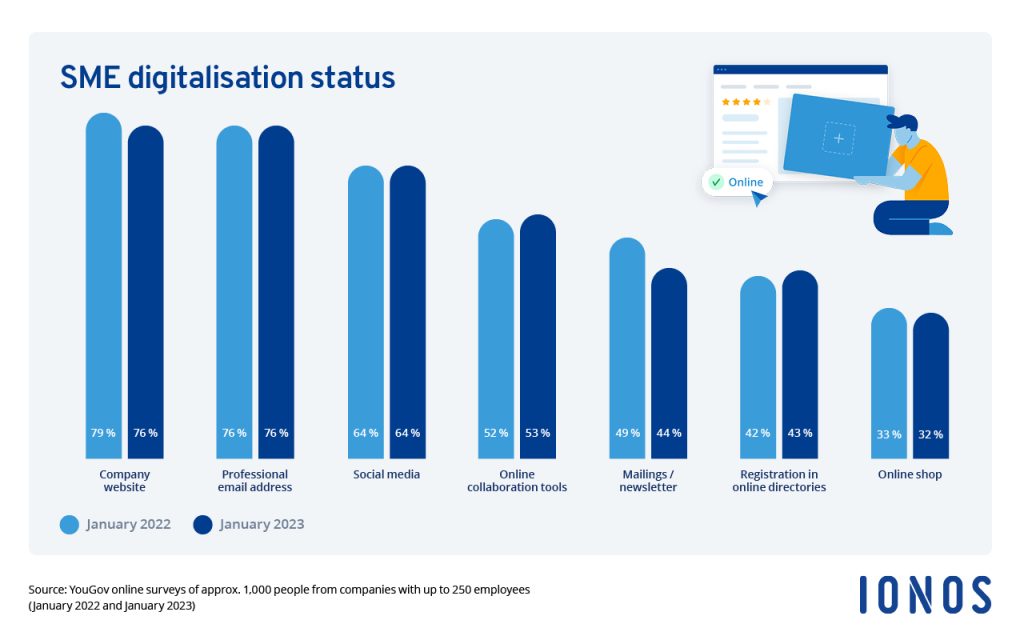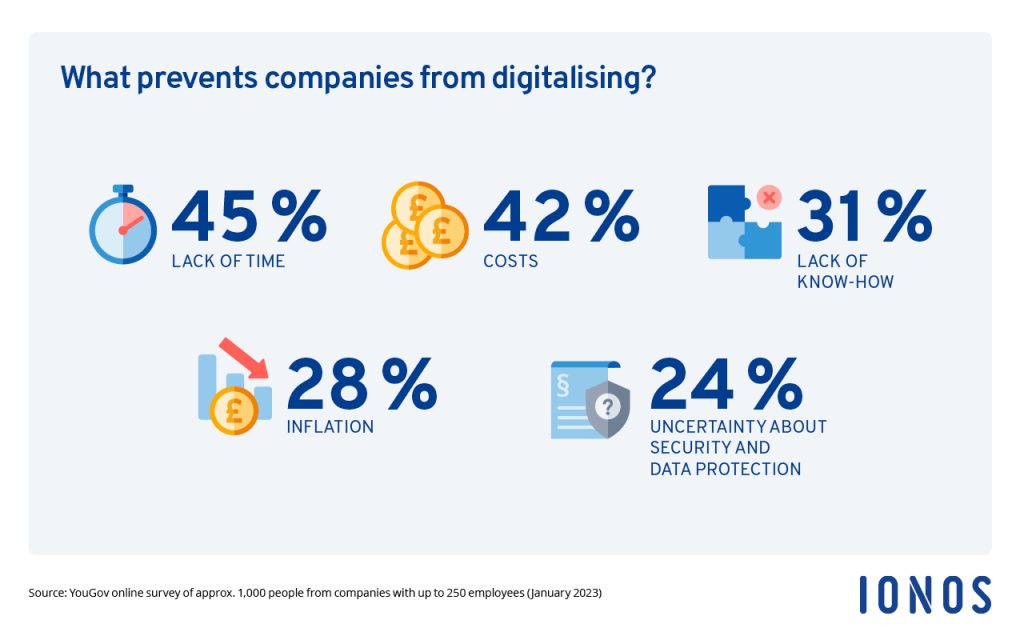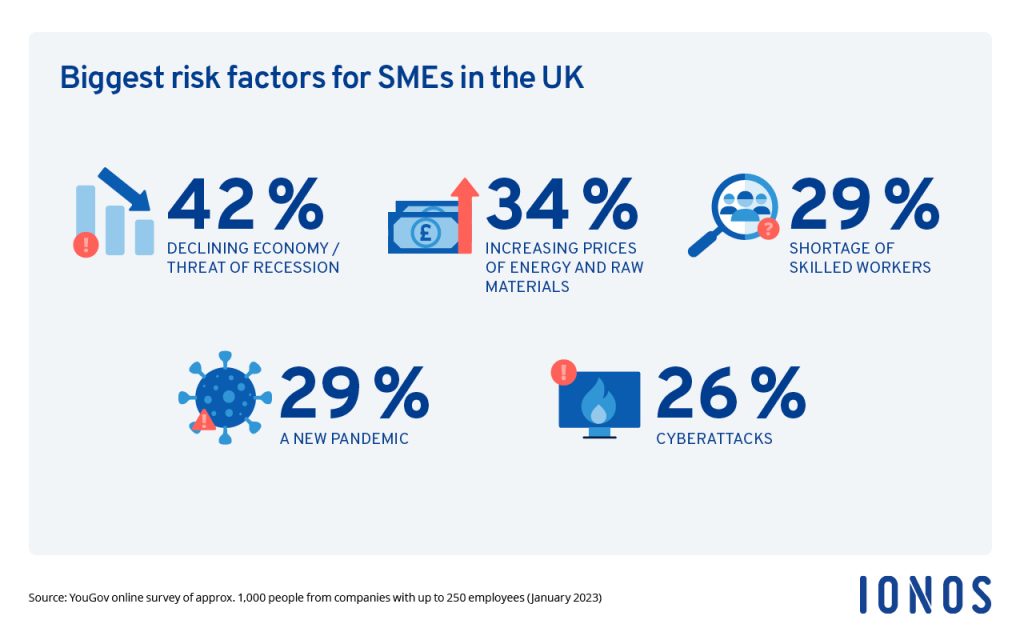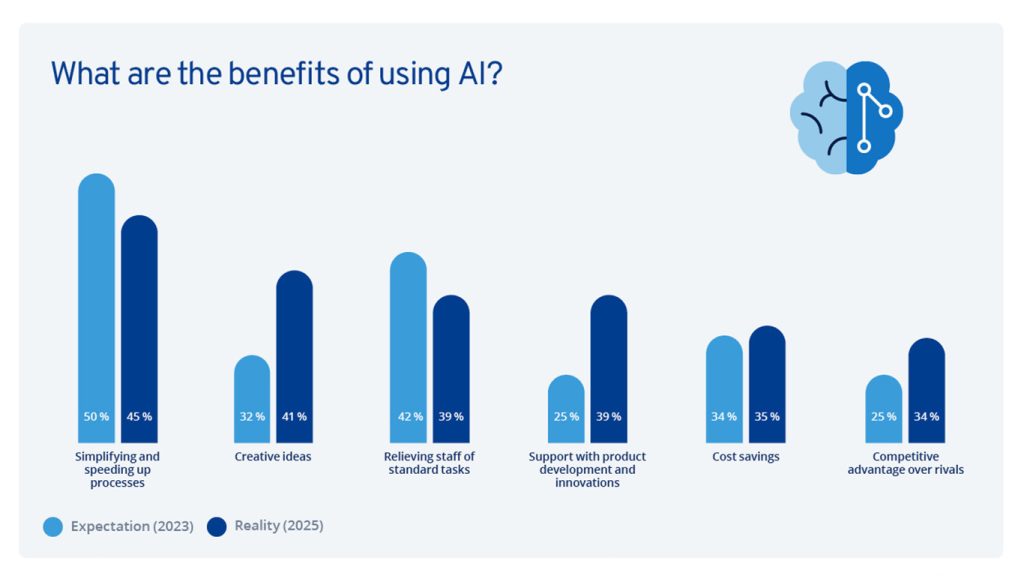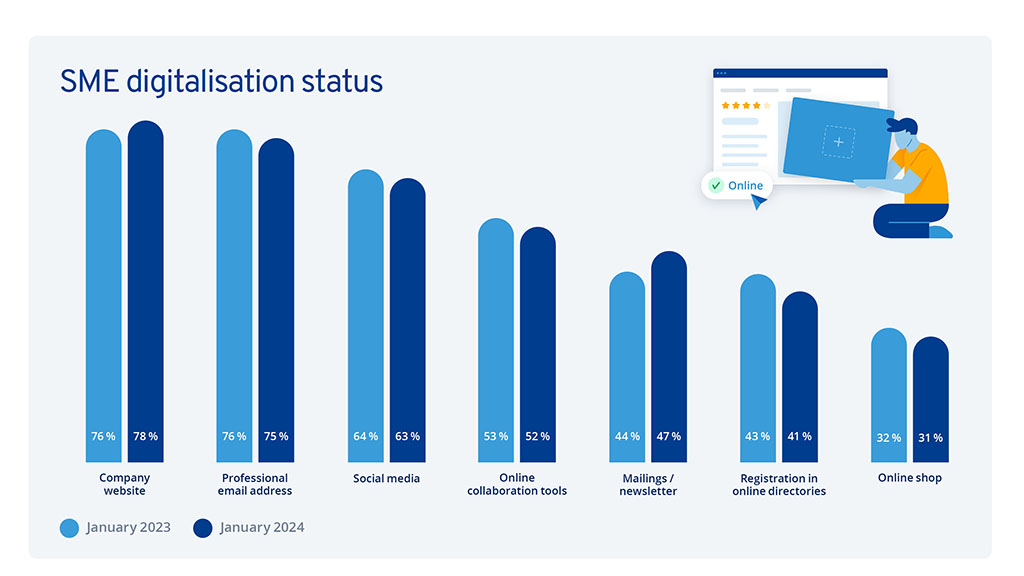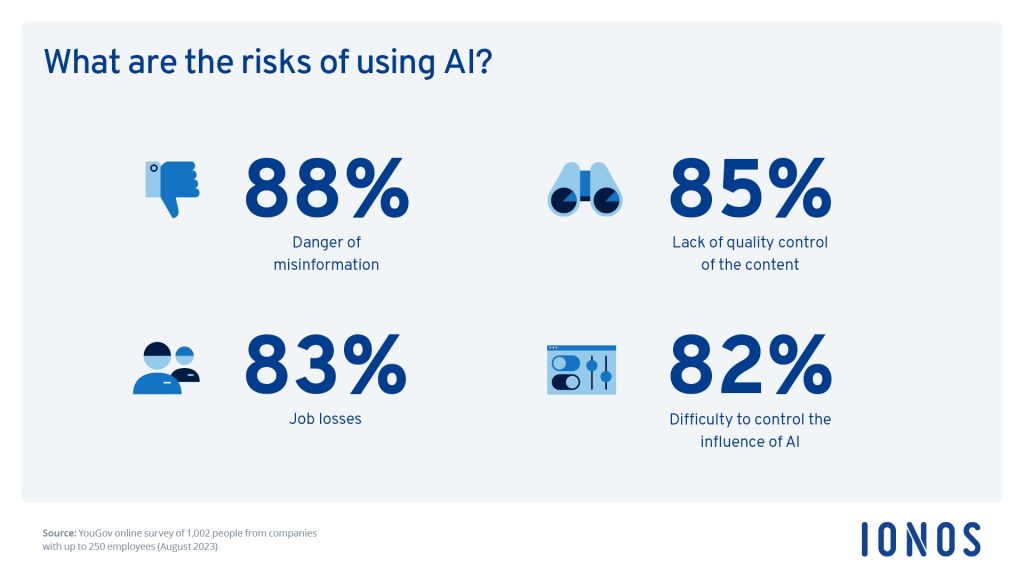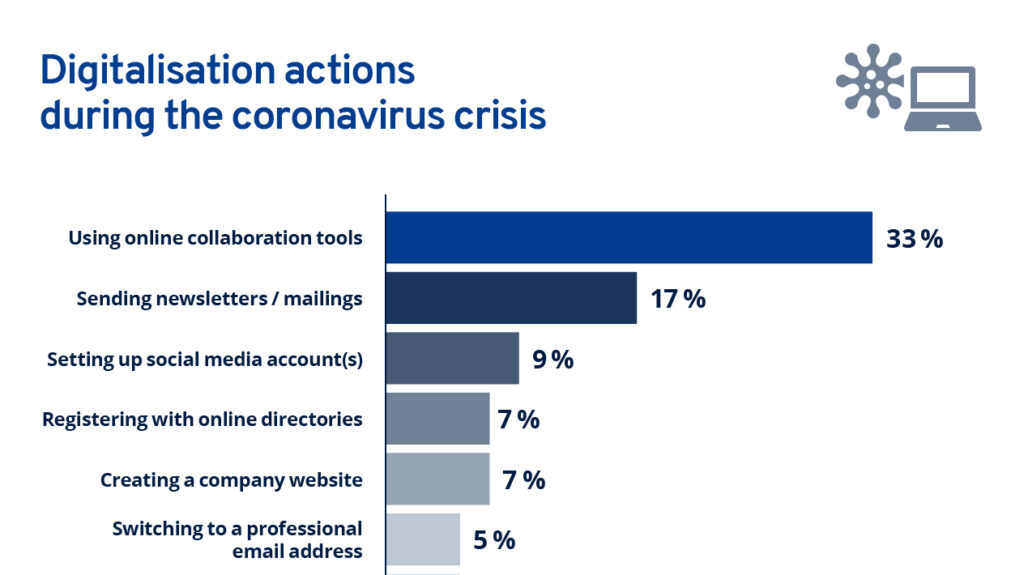UK small business growth held back by cost-of-living, skills shortage and increased cyber threat
Research: SMEs consider digitalisation to be important for their future viability.
March 16, 2023
New research from IONOS, the leading European digitalisation partner for small and medium-sized businesses, has found that while UK SMEs consider digitalisation to be important for the future viability of their business, there are growing concerns around the cost of living crisis, shortage of skilled workers and increased threat of cyberattack.
IONOS, in partnership with YouGov, polled 1,004 UK SMEs to understand where digitalisation is tracking in terms of business priorities, the factors which are considered important for driving business forward and any key challenges holding it back. Key findings include:
- Digitalisation is increasingly crucial for future growth – 79% of SMEs in the UK consider digitalisation to be important for the future viability of their business, with the three top benefits including presence and ease of discovery on the internet (78%), creating a modern image (76%) and the ability to win new customers (72%).
- Economic uncertainty poses a concern – 42% of respondents stated that the declining economy and threat of recession present a high or very high risk to their company, 34% identified increasing prices of energy and raw materials as high or very high risk, and 28% stated that inflation is a major barrier to further digitalisation.
- The skills shortage continues to impact business – Over a quarter of UK SMEs (29%) said the ongoing shortage of skilled workers poses a high or very high risk for their business and 31% of respondents said the lack of know-how represents a major, or very major, barrier to digitalisation efforts. Other barriers include cost (45%), lack of time (45%), lack of interest (21%) and uncertainty around security and data protection (24%).
- SMEs are not fully protected from cyberattack – While 16% of SMEs believe they are very well protected when it comes to cybersecurity, 31% consider themselves positioned just ‘averagely’ and 7% are not protecting themselves at all.
“Those who don’t firmly anchor their business strategy in digitalisation will have a hard time surviving in the market in the future,” comments Achim Weiß, CEO of IONOS. “Of course, know-how must be built up first and resources invested, which isn’t always easy, especially for small companies. However, what they gain from digitalisation far outweighs that initial outlay: more security, new business models and greater resilience to crises.”
The survey also explored how UK SMEs compare to their counterparts in France, Germany, Spain and the US. Interestingly, the results found that while a third of UK SMEs are feeling the impact of energy and raw materials increasing in price, the situation is worse in France and Spain where half of SMEs consider the rising costs as high or very high risk to business. Respondents in all countries rated shortage of skilled workers as high to very high risk for their business, however the US came out highest with 44%.
Source: The data used is based on online surveys by YouGov on behalf of IONOS, in which around 4,800 people from companies up to 250 employees participated in January 2023 (UK 1,004 people; Germany 1,005 people; Spain 1,004 people; France 801 people; USA 1,000 people).

